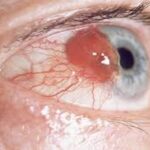“Most cancers are preventable provided people undertake screening regularly”
New Delhi, July 4, 2018:
Veteran Bollywood actor Sonali Bendre on Wednesday revealed that she has been diagnosed with a high-grade cancer that has metastasized. With this, she falls in the category of other celebrities such as Manisha Koirala and Irrfan Khan who were also diagnosed with different types of this disease recently. While the latter has recuperated, Irrfan is still undergoing treatment. The need of the hour therefore is to create awareness on the need for timely health checks at every stage of life and taking preventive action.
There are about 2.5 million people living with cancer in India and over 7 lakh new cases get registered every year. Of all the various types of cancer, those of the oral cavity and lungs in males and cervix and breast in females account for about 50% of all related deaths in the country.
Speaking about this, Padma Shri Awardee, Dr K K Aggarwal, President, HCFI, said, “The news of Sonali Bendre being diagnosed with the disease only points to one fact: the importance of timely diagnosis and action. Cancer is the name given to a collection of related diseases that are caused when a group of abnormal cells begins to grow uncontrollably, often forming a tumor. Tumors can either be benign or malignant. There are four major types of clinical preventive care: immunizations, screening, behavioral counseling (lifestyle changes), and chemoprevention. Screening is the identification of an asymptomatic disease, unhealthy condition, or risk factor. Primary prevention are interventions to keep disease from occurring (e.g., immunization for communicable disease); secondary prevention as detection of early asymptomatic disease (e.g., screening); and tertiary prevention as reducing complications of disease (e.g., eye examinations in patients with diabetes). This nomenclature is applied differently by some other disciplines.”
Symptoms that should prompt a person to get tested for cancer include a triad of any symptom or sign that is unexpected, unexplained or appearing for the first time.
Sudden and unexplained weight loss; unexplained fever; unexplained extreme fatigue; unexplained recurrent pain in any part of the body; unexplained changes to the skin such as darkening, itching, and reddening; unexplained changes in bowel habits; unusual bleeding or discharge; unusual white spots on the tongue; and unexplained nagging cough or hoarseness all can be the examples.
Adding further, Dr Aggarwal, who is also the Vice President of CMAAO, said, “Cancer, if detected early, can be treated at a much lower cost compared to that incurred when diagnosed at an advanced stage. The mortality rate is also lowered substantially if people report for screening when the earliest symptoms manifest. Unfortunately, nearly two-thirds of cancer cases are diagnosed at an advanced stage, reducing patients’ chances of cure and survival.”
Dr Aggarwal further said that in most metastatic cancers which have spread the source can be traced. Cancers of unknown primary or CUP accounts for up to 4 to 5 percent of all cancer diagnoses and can be classified into four categories: Adenocarcinoma, Squamous cell carcinoma, Neuroendocrine carcinoma (differentiated or poorly differentiated) and poorly differentiated cancer. Accurate prediction of the tissue of origin using immunohistochemical staining and/or gene expression profiling is now possible in most CUP patients, and site-specific therapy based on these predictions is replacing empiric chemotherapy as the new treatment standard.
Some tips from HCFI
Here are some ways in which one can diagnose and prevent the onset of cancer at an early stage.
- Pay attention to symptoms and get yourself checked regularly.
- Using any type of tobacco puts a person at an increased risk of cancer. Avoiding or stopping the consumption of tobacco is one of the foremost steps in cancer prevention.
- Filter tap water properly as this can reduce your exposure to possible carcinogens and hormone-disrupting chemicals.
- Get vaccinated on time and as per schedule. For example, the Human Papilloma Virus (HPV) vaccine helps prevent most cervical cancers and several other kinds of cancer.
- Drinking plenty of water and other liquids can help in reducing the risk of bladder cancer by diluting the concentration of cancer-causing agents in urine and helping to flush them through the bladder faster.
- Most importantly, make lifestyle changes such as eating a healthy diet and getting regular exercise. Fruits and vegetables are rich in antioxidants which can help ward off diseases.







